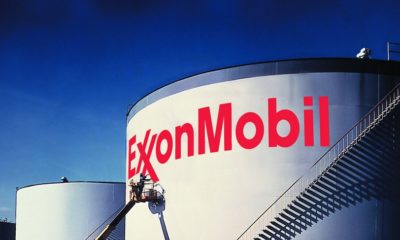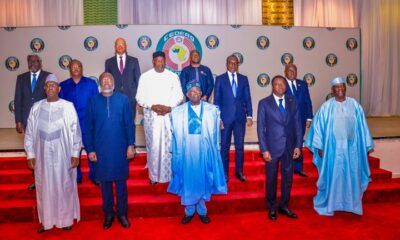The World Bank has revealed that the economy of Sub-Saharan Africa (SSA) is set to expand by 3.3 percent in 2021.
In the latest edition of Africa’s Pulse report, the World Bank noted that Sub-Saharan Africa is set to emerge from the 2020 recession sparked by the COVID-19 pandemic, with the rebound currently fueled by elevated commodity prices, a relaxation of stringent pandemic measures, and recovery in global trade.
According to analysis in the report, growth for 2022 and 2023 will also remain just below 4 percent, continuing to lag the recovery in advanced economies and emerging markets, and reflecting subdued investment in SSA.
The report also highlighted that the region’s current economic recovery speeds are varied, with the three largest economies, Angola, Nigeria, and South Africa, expected to grow by 0.4 percent, 2.4 percent, and 4.6 percent, respectively.
“Excluding South Africa and Nigeria, the rest of SSA is rebounding faster at a growth rate of 3.6 per cent in 2021, with non-resource-rich countries like Côte d’Ivoire and Kenya expected to recover strongly at 6.2 and 5.0 per cent, respectively,” the report said.
However, the report notes that the region remains vulnerable, given the low rates of vaccination on the continent, protracted economic damage, and a slow pace of recovery.
Another critical insight from the report revealed that inflation picked up on the back of rising food and fuel prices. According to the report, inflation rose in most countries in SSA, reflecting elevated food price inflation, and it is projected to increase to 4.3 percent in 2021. However, inflation remains within central bank objectives in many countries, except in Nigeria, where it is outside the target band although downward.
Another positive trend, according to the report authors, is that African countries have seized the opportunity of the crisis to foster structural and macroeconomic reforms. According to the report, several countries have embarked on difficult but necessary structural reforms, such as the unification of exchange rates in Sudan, fuel subsidy reform in Nigeria, and the opening of the telecommunications sector to the private sector in Ethiopia.
Additionally, thanks to prudent monetary and fiscal policies, the region’s fiscal deficit, at 5.4 percent of GDP in 2021, is expected to narrow to 4.5 percent of GDP in 2022 and 3 percent of GDP in 2023.
The report recommends that just as the countries have used the crisis to introduce reform measures, they should also harness this opportunity to make sustainable, resilient transitions toward low-carbon economies that can provide long-term benefits in the form of reduced environmental hazards as well as new economic development openings.
“Investments in climate-smart infrastructure can help cities create jobs,” the report stated. It added that “Decarbonization is an opportunity to foster manufacturing activity in the region, including the production of components of the Internet of Things, value-addition to minerals that will power the green economy, and insertion into regional value chains.”

 News3 weeks ago
News3 weeks ago
 Business3 weeks ago
Business3 weeks ago
 Technology3 weeks ago
Technology3 weeks ago
 Investment3 weeks ago
Investment3 weeks ago
 Banking Sector3 weeks ago
Banking Sector3 weeks ago
 Banking Sector3 weeks ago
Banking Sector3 weeks ago
 Investment4 weeks ago
Investment4 weeks ago
 Appointments3 weeks ago
Appointments3 weeks ago





























